The Neuroarts Academic Network, launched in September 2025, is a key part of the NeuroArts Blueprint Initiative. The Network aims to expand the transformative power of the arts—such as music, dance, painting, and storytelling—by building the emerging interdisciplinary field of neuroarts and training the next generation of leaders.
The Network (or NAN) was created in response to recommendations made in the NeuroArts Blueprint: Advancing the Science of Arts, Health, and Wellbeing, an ambitious and far-reaching plan for cultivating the field of neuroarts. Rooted in the science of neuroaesthetics and ways of knowing, the field of neuroarts explores how the arts and aesthetic experiences change the brain, body, and behavior and how this knowledge can be applied to advance health, well-being, and society.
Building on a baseline of core principles and findings, the Blueprint lays out both a five-year strategy and a longer-term, narrative-shifting path to culture change based on five core recommendations:
- Strengthen the research foundation of neuroarts.
- Honor and support the many arts practices that promote health and well-being.
- Expand and enrich educational and career pathways.
- Advocate for sustainable funding and promote effective policy.
- Build capacity, leadership, and communications strategies.
To help build the field and implement the recommendation to expand and enrich educational and career pathways, the NAN was formed as a global coalition of academic institutions dedicated to advancing the field of neuroarts through a varied array of disciplines. The Network:
- Connects universities and programs already working in neuroarts,
- Encourages new research and training programs,
- Builds career paths that combine arts and health,
- Expands best practices and addresses core challenges, and
- Supports the field so it grows in a sustainable and rigorous way.
The Network’s ultimate goal is to make neuroarts an established academic and professional field across disciplines including the arts, health, basic sciences, public health, architecture, design, education, business, community development, and more. Each discipline has a distinct career path and its own unique focus, but all are rooted in the science showing the positive impact of the arts on health and well-being.
The Network’s projects and long-term goals are informed by the NAN Working Group, which includes representatives from over 35 universities and organizations from around the world who are leaders in their disciplines.
The Network is also generously supported by The Music Man Foundation, a national foundation dedicated to permanently changing the way the arts are used to improve education, health, and community well-being.
Click here to view the press release from the September 2025 launch.
Neuroarts Academic Network Working Group Members
Kat Agres, National University of Singapore
Joy Allen, Berklee College of Music
Lee Ann Scotto Adams, University of Texas at Austin/Strategic National Arts Alumni Project
Randy Blakely, Florida Atlantic University
Jonathan Burdette, Wake Forest University – Charlotte
Debra Burns, University of Memphis
Anjan Chatterjee, University of Pennsylvania
Emily Cross, ETH-Zurich
Katie Cullen, University of Minnesota
Deborah Cullinan, Stanford University
Sarah Cunningham, North Bennet Street School
David Fakunle, Morgan State University
Maryrose Flanigan, University of Michigan
Gail Geller, Johns Hopkins University
Thalia Goldstein, George Mason University
Assal Habibi, University of Southern California
Lisa Howley, Association of American Medical Colleges
Mary Ittelson, University of Chicago
John Iversen, McMaster University
Shabrae Jackson, The European Graduate School, Switzerland
Girija Kaimal, Drexel University
Jean King, Worcester Polytechnic Institute
Mary Jo Kreitzer, University of Minnesota
Judy Lichtman, Yale University
Psyche Loui, Northeastern University
Elizabeth Margulis, Princeton University
Bruce Miller, University of California at San Francisco
Michael Murphy, Georgia Tech University
Monica Parker, Emory University
David Putrino, Icahn School of Medicine
Sheri Robb, Indiana University
Nisha Sajnani, New York University
Milton Shinberg, Catholic University
Jill Sonke, University of Florida
Christina Soriano, Wake Forest University – Winston Salem
Adrian Tyndall, Morehouse School of Medicine
Tamara Underiner, Arizona State University
Indre Viskontas, University of San Francisco
Lisa Wong, Harvard Medical School
Biosketches
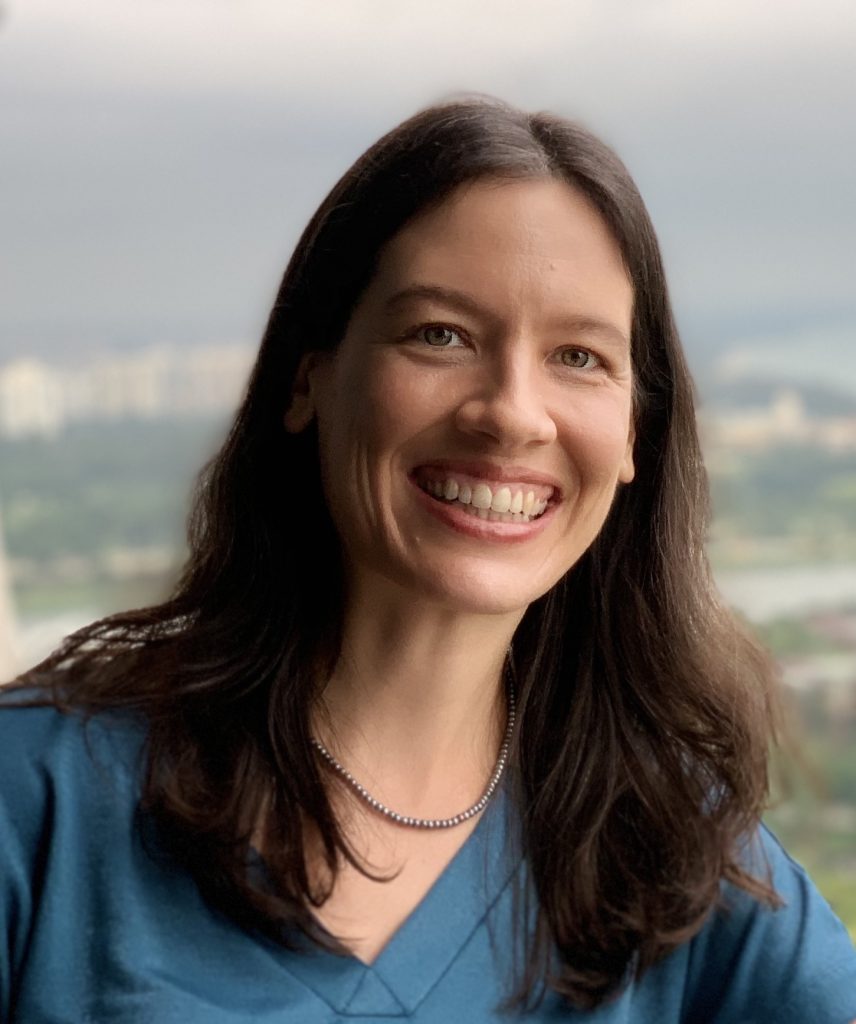
Kat Agres
Dr. Kat Agres is an Assistant Professor at the Yong Siew Toh Conservatory of Music at the National University of Singapore (NUS) and Founding Director of the Centre for Music and Health, the first dedicated research center in Southeast Asia to spearhead evidence-based research leveraging the efficacy of music for health and well-being.
Kat received her PhD in Cognitive Psychology from Cornell University and completed postdoctoral fellowships in Music Cognition and Computational Creativity at the University of London. She also holds a bachelor's degree in Cello Performance and Psychology from Carnegie Mellon University.
Kat’s research explores music interventions and technologies for healthcare and well-being, music perception and cognition, and computational creativity. She has received numerous grants to support her research in Singapore, the U.S., and U.K. Kat has presented her research in over twenty countries around the world and has also performed professionally as a cellist.

Joy Allen
Joy Allen, PhD, MT-BC, is an active clinician, researcher, and educator with extensive experience in psychological health, medical music therapy, and trauma-informed education and supervision. She serves as Chair of Music Therapy at Berklee College of Music and is also the Founding Director of the Music & Health Institute, where she curates programs and trainings, maintains a repository of music and health-related research, and designed a one-of-a-kind Music & Health Innovation Studio to incubate and accelerate the development of music-informed, solution-focused resources for a wide range of healthcare challenges impacting our global communities.
Joy is a sought-after consultant with community and higher education leaders on music therapy and music and health program and curriculum development, including training programs in music and health that target musicians, healthcare workers, and community members looking to develop beginning knowledge and skills in research, program development, community engagement, and/or entrepreneurship within the music and health landscape. She has presented her work at several peer-reviewed conferences, including regional, national, and international music therapy and music and health-related conferences.

Lee Ann Scotto Adams
Lee Ann Scotto Adams is the executive director of the Strategic National Arts Alumni Project at the University of Texas at Austin. She brings nearly 20 years of expertise in nonprofit management, higher education, and the arts. Lee Ann is committed to promoting the value of arts education and supporting and advancing the arts research ecosystem. Previously, she served as executive director of the Association of Arts Administration Educators and assistant director of programs and operations at the Association of Independent Colleges of Art & Design—making meaningful contributions to the field in each of these roles. Her career also includes roles in admissions at Rhode Island School of Design (RISD) and as an administrator in the Fine American Paintings Department at Christie’s Auction House. She holds a BFA from RISD and an MS in Nonprofit Management from Northeastern University.
Lee Ann is deeply engaged in the arts community, having served as treasurer of the Rhode Island Art Education Association and currently serving as Vice President for DownCity Design, an organization that empowers young people to serve their communities through design. In addition to her leadership roles, she maintains an active creative practice as a painter and is passionate about strengthening the arts through her professional contributions and board service.
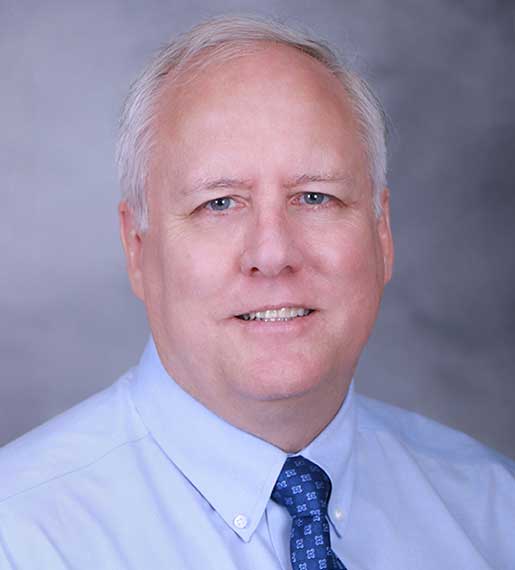
Randy Blakely
Dr. Randy Blakely holds the David J. S. Nicholson Distinguished Professorship in Neuroscience and is Professor of Biomedical Science at the Charles E. Schmidt College of Medicine at Florida Atlantic University (FAU). He is the founding Executive Director of the FAU Stiles-Nicholson Brain Institute and serves as the Director of the Neuroscience Graduate Program at FAU. Blakely, a molecular neuroscientist, is widely known for his cloning and investigation of genes responsible for the natural inactivation of neurotransmitters. The proteins encoded by these genes are major targets for abused drugs and medications including cocaine, amphetamine, Adderall, Ritalin, Prozac, and other major antidepressants.
Randy’s work has uncovered novel genetic and biochemical contributions to cardiovascular, cognitive, behavioral, neuromuscular, and neurodegenerative disorders. He has published more than 350 research papers in high-impact journals including Science, Nature, Neuron, and PNAS. Blakely’s discoveries have resulted in more than a dozen patents, leading to his induction into the U.S. National Academy of Inventors, as well as the American Academy for the Advancement of Science. In 2022, Blakely received the Neuroscience Educator Award from the Society for Neuroscience, the world’s largest organization supporting neuroscience research and education in the world.
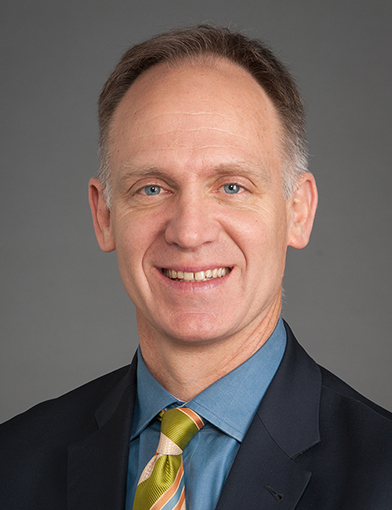
Jonathan Burdette
Dr. Jonathan Burdette is a Professor of Neuroradiology at Wake Forest University School of Medicine, where he is the Vice Chair of Research for the Department of Radiology. Following graduation with a degree in Biomedical Engineering from Duke University, he received his MD degree from The University of Tennessee College of Medicine in Memphis and did his radiology residency at The University of Michigan in Ann Arbor. His neuroradiology fellowship was at Wake Forest University where he has been ever since. He has published 90 peer-reviewed manuscripts. His current research focuses on using advanced MR imaging techniques to study the brain as a complex network.
Jonathan is a founding member of the Laboratory for Complex Brain Networks (LCBN), an interdisciplinary group of scientists dedicated to using functional MRI (fMRI) to study the brain using network theory approaches. The LCBN studies how exercise, nutritional habits, beet root juice, and meditation affect the functioning brain in the elderly. Additional research interests include the effects of music on the brain, the effects of pesticide exposure on brain development in children of Latino farmworkers and identifying a brain network phenotype that is characteristic of vulnerability to alcohol use disorder. When he is not working, he enjoys performing with the local opera company and watching his three daughters perform as the bluegrass/Celtic band The Dan River Girls.
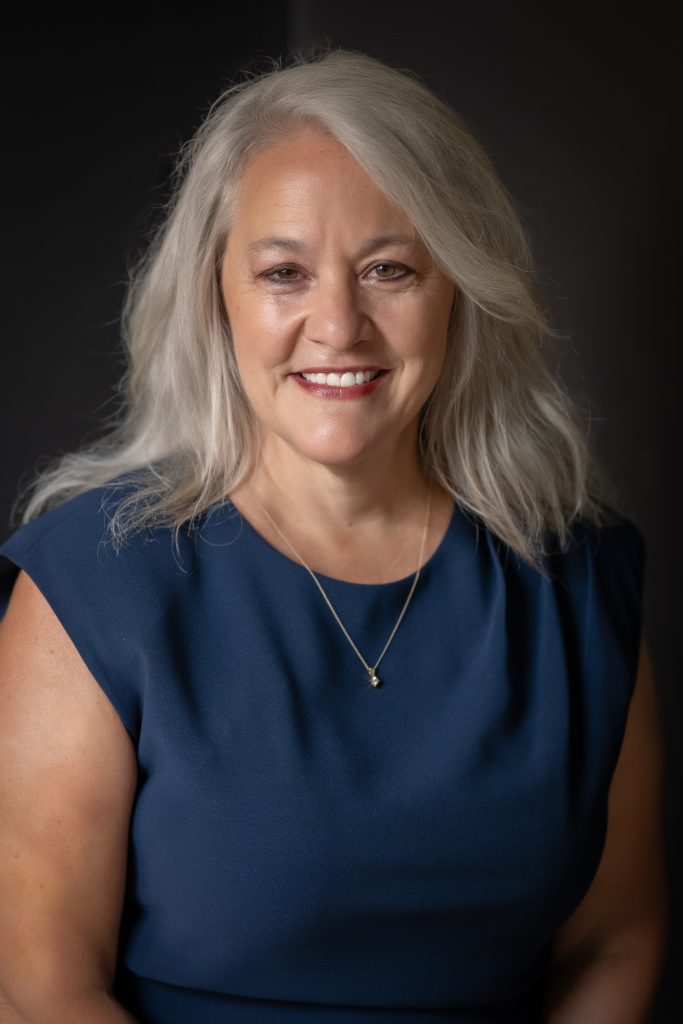
Debra Burns
Debra Burns, PhD, MT-BC, is Professor and Dean of the College of Communication and Fine Arts at the University of Memphis. She is a renowned expert in music-based intervention research focusing on developing and testing interventions to alleviate symptoms and side effects resulting from disease-directed treatments in oncology and at the end of life. Recently, she has started exploring the potential uses of music-based interventions in chronic pain and opioid addiction treatment as well as technologies and computational methods to deliver and measure the effect of music-based interventions.
Deb’s extensive work includes collaboration and consultation on several federally funded studies, where she assisted in identifying essential components of music interventions and monitoring treatment fidelity. She leads the AudioAnalgesiA Research Network, funded by the National Center of Complementary and Integrative Health (NCCIH/NIH) and the National Endowment for the Arts.
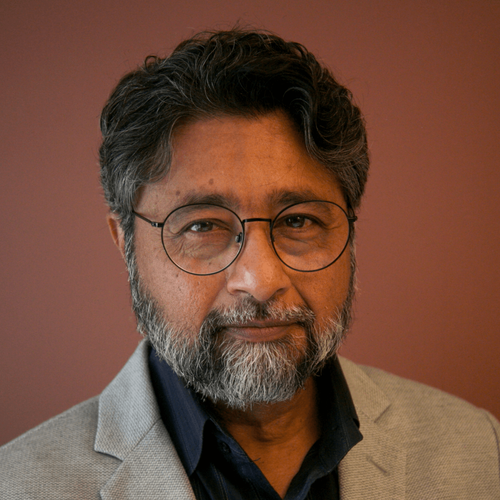
Anjan Chatterjee
Dr. Anjan Chatterjee is a Professor of Neurology, Psychology, and Architecture and the founding Director of the Penn Center for Neuroaesthetics. He is a member of the Center for Cognitive Neuroscience and the Center for Neuroscience and Society at the University of Pennsylvania. He received his BA in Philosophy from Haverford College and his MD from the University of Pennsylvania and completed his neurology residency at the University of Chicago. His clinical practice focuses on patients with cognitive disorders, and his research addresses questions about spatial cognition and language, attention, neuroethics, and neuroaesthetics.
Anjan wrote The Aesthetic Brain: How We Evolved to Desire Beauty and Enjoy Art and co-edited Neuroethics in Practice: Mind, Medicine, and Society and The Roots of Cognitive Neuroscience: Behavioral Neurology and Neuropsychology. He has served on the editorial boards of many journals, including American Journal of Bioethics: Neuroscience; Behavioural Neurology; Cognitive and Behavioral Neurology; and Neuropsychology. He was awarded the Geschwind Prize in Behavioral and Cognitive Neurology by the American Academy of Neurology and the Arnheim Prize for contribution to Psychology and the Arts by the American Psychological Association.

Katie Cullen
Dr. Katie Cullen is a tenured Professor in the Department of Psychiatry and Behavioral Sciences at the University of Minnesota, where she directs the Division of Child and Adolescent Mental Health. Her research lab is examining the neurodevelopmental underpinnings of depression, self-injury and suicide risk in adolescents and young adults, and investigating interventions aimed at promoting healthy trajectories in these youth. She has also been examining creativity in youth and exploring creative arts interventions as a way to improve mental health and well-being in young people.
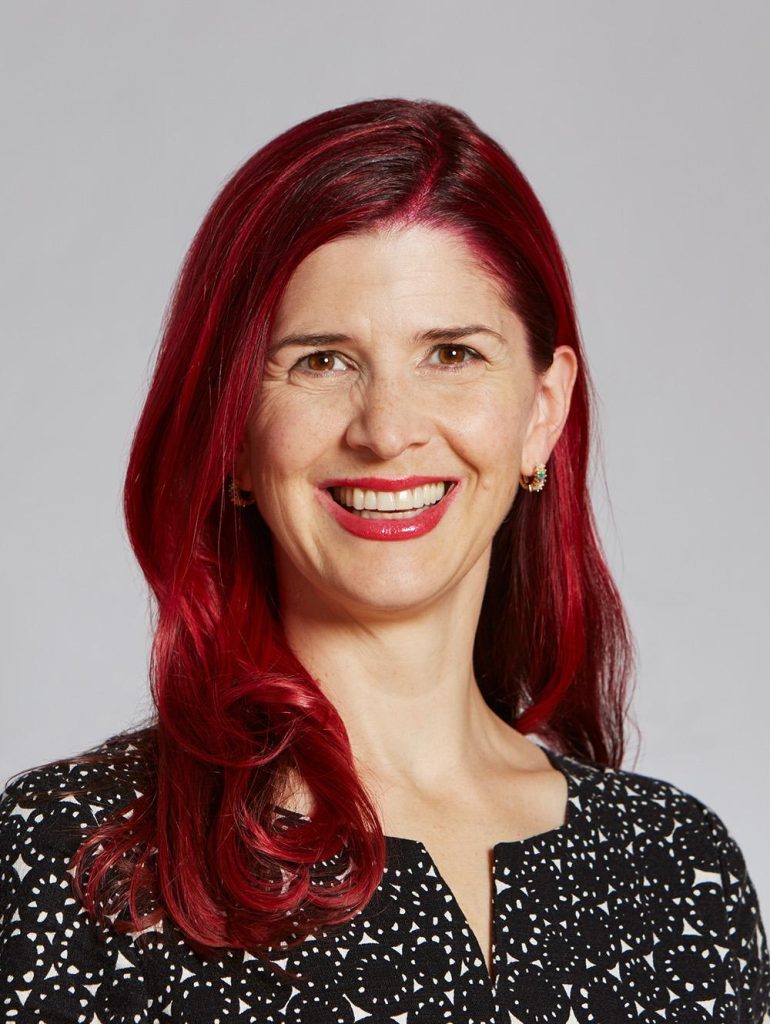
Emily Cross
A dancer and cognitive neuroscientist by training, Dr. Emily Cross arrived at ETH Zurich in the spring of 2023, where she leads the Social Brain Sciences Professorship. Prior to this, she held professorships at Bangor University, Wales; University of Glasgow, Scotland; Macquarie University, Australia, and the MARCS Institute at Western Sydney University, Australia. The defining characteristic of the work conducted by Cross and her team is a focus on how different kinds of embodied experience shape how we learn from and perceive others in a complex social world, and across a variety of experience domains.
Throughout her career, Emily has combined intensive learning paradigms with pre-/post-training brain imaging measures to build a richer understanding of experience-dependent plasticity at brain and behavioral levels. She is especially well-regarded for (1) identifying the neural signatures of embodied expertise using expert dancers and training paradigms; (2) combining neuroscience and performing arts to propose a new theory of embodied neuroaesthetics; (3) uncovering new insights into neurocognitive foundations of visual learning across the lifespan; and (4) developing innovative neurocognitive paradigms to explore the mechanisms and consequences of people’s social engagement with robots.
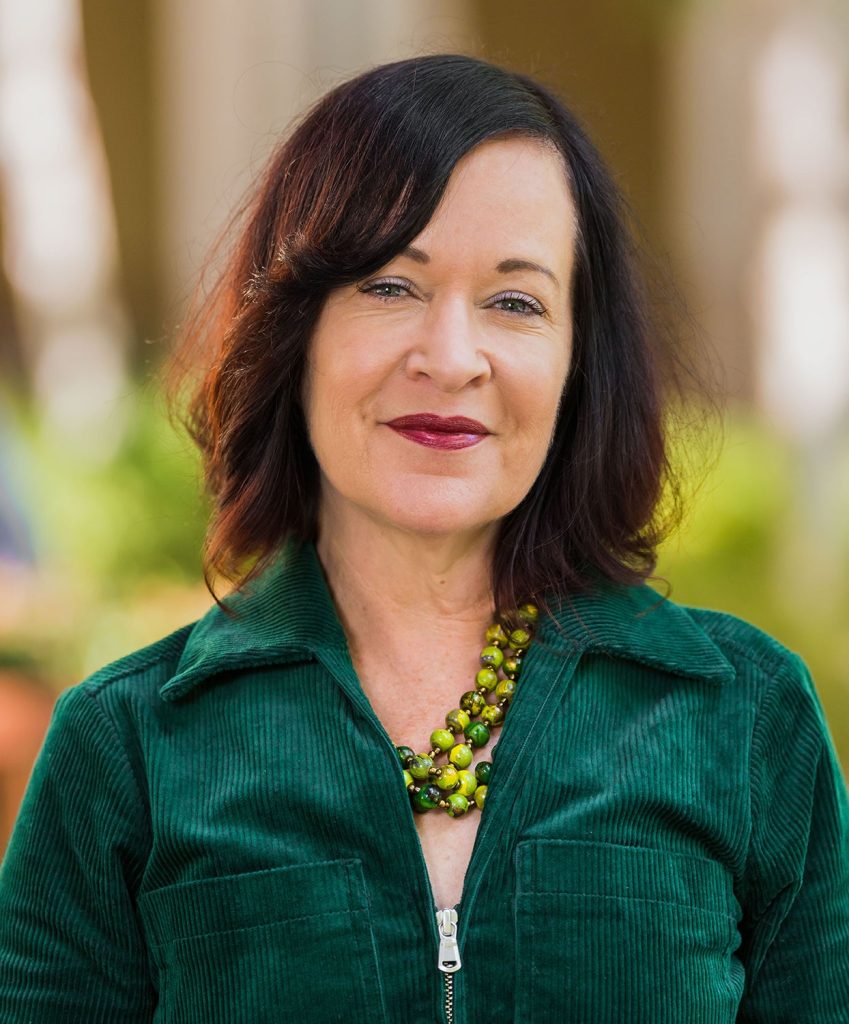
Deborah Cullinan
Deborah Cullinan is Vice President for the Arts at Stanford University. She is one of the nation’s leading thinkers on the pivotal role artists and arts organizations can play in shaping our social and political landscape. She has spent years mobilizing communities through arts and culture on a local and national level.
Deb joined Stanford in early 2022 as a member of the University President’s cabinet and the first full-time Vice President for the Arts. She oversees a portfolio of multidisciplinary public-facing arts organizations and academic arts institutes that support her comprehensive, integrated, and future-facing vision for the arts at the university. Previously, she was CEO of Yerba Buena Center for the Arts where she launched several bold new programs, engagement strategies, and civic coalitions.
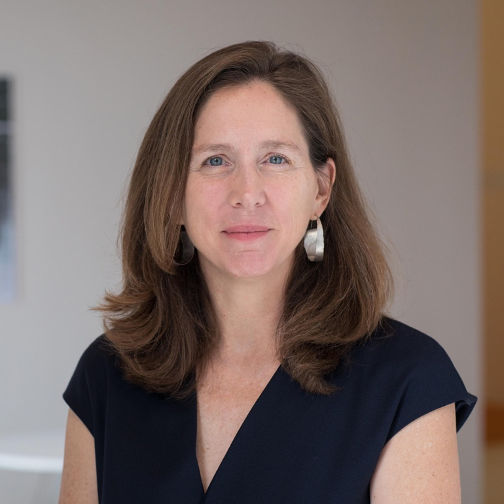
Sarah B. Cunningham
Dr. Sarah B. Cunningham was recently appointed the president of North Bennet Street School, ‘America’s first trade school’ and a leader in craft and skilled trades education. Dr. Cunningham brings experience with academic-industry partnerships as former Vice Provost for Strategic Partnerships at Rhode Island School of Design where she was responsible for careers, research, and partnerships working across academic departments. From 2011-2019, Dr. Cunningham served as first Executive Director for Research at VCU School of the Arts, leading efforts in arts and medicine, faculty research development, and transdisciplinary initiatives.
Throughout her career, Cunningham has supported organizational transformation through partnerships and initiatives that expand learning opportunities while connecting to real-world enterprises. Recent projects include the development of biomaterial innovation in the automotive industry, designing an apprenticeship program with a luxury jewelry company, and producing an arts-engineering partnership that led the first robotic crossing of the Andes mountains. Former collaborators include Carnegie Hall, Haworth, Jazz at Lincoln Center, Poetry Foundation, Sustainable Markets Initiative and the Tate Modern.
Cunningham currently serves on the board of the Strategic National Arts Alumni Project, a 20-year effort to collect data on graduates of fine arts and design programs. She has a PhD in philosophy from Vanderbilt University where she conducted research on cognition, aesthetics, and the common good.
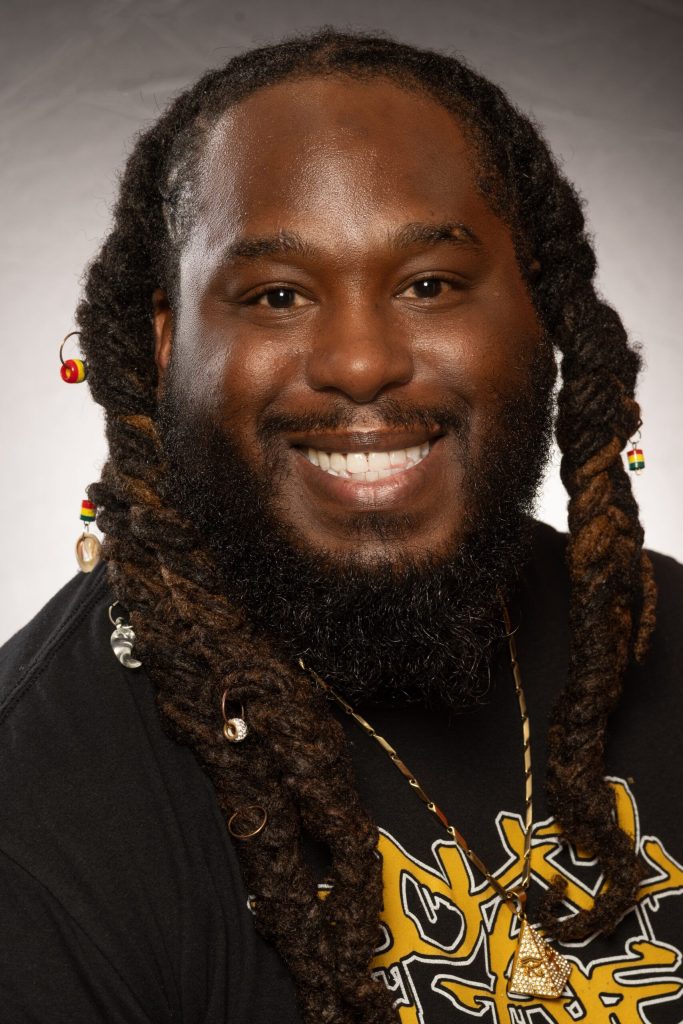
David Fakunle
David Fakunle, PhD, is a “mercenary for change,” utilizing skills and occupying spaces to help anyone divested from their truest self, particularly those who are Black, Indigenous, and/or People of Color. David serves as Assistant Professor at the Morgan State University School of Community Health & Policy, Associate Faculty at the Johns Hopkins Bloomberg School of Public Health, and Chair of the Maryland Lynching Truth and Reconciliation Commission.
David’s interests include stressors within the built environment, manifestations of systemic oppression, and the utilization of arts and culture – specifically storytelling – to cultivate holistic health through humanity, justice, equity, and ultimately, liberation.
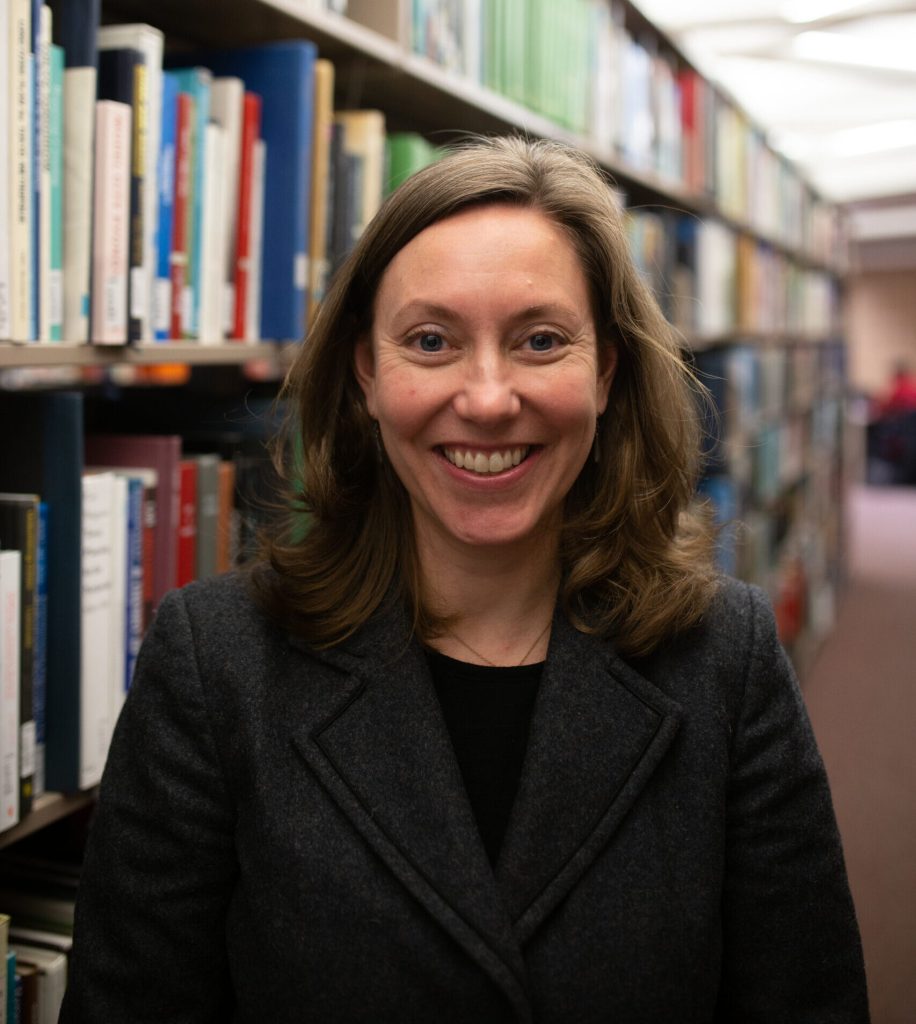
Maryrose Flanigan
Maryrose Flanigan is the executive director of the Alliance for the Arts in Research Universities (a2ru), where she oversees a network of universities which are committed to advancing arts-based and interdisciplinary research, practice, and teaching in higher education. She serves on the executive committee for the arts initiative at a2ru’s headquarters at the University of Michigan and served on the advisory cohort for the Imagining America’s Leading and Learning Initiative: Shifting Institutional Culture to Fortify Public Scholarship, funded by the Andrew W. Mellon Foundation.
Prior to joining the staff at a2ru, Maryrose served in various roles at the National Endowment for the Arts: division coordinator for Literature and Arts Education, specialist for the creative writing and translation fellowships, and program manager for the national programs Poetry Out Loud and the NEA Big Read. She has also served as associate editor for the Office of Communications and Public Affairs at the Association of American Colleges and Universities and associate director for the Association of Writers and Writing Programs. Maryrose has an MFA in poetry from American University.
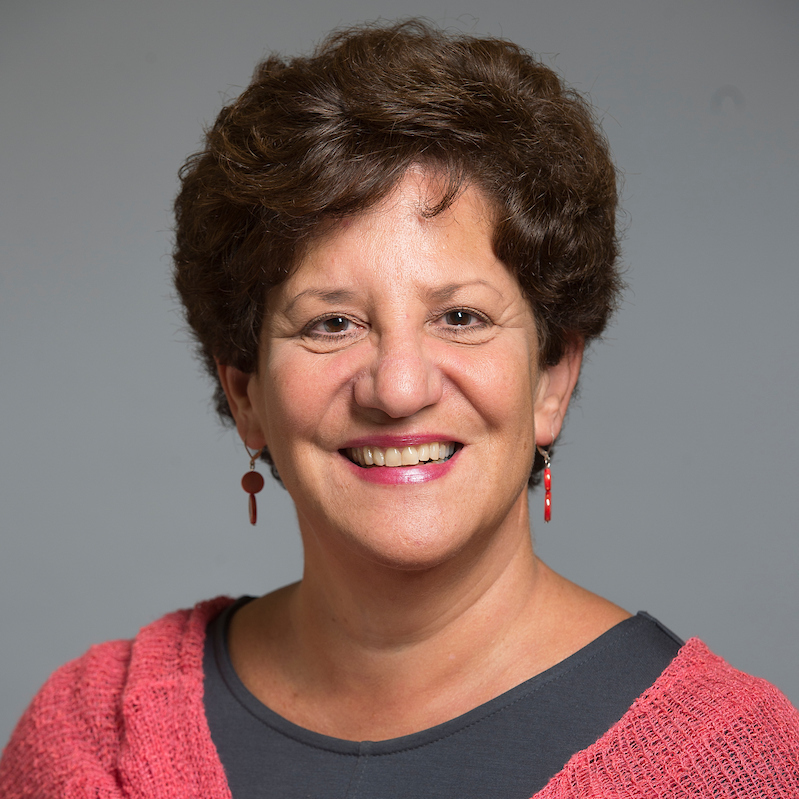
Gail Geller
Gail Geller, ScD, MHS, has just retired as Professor at the Johns Hopkins University School of Medicine and Berman Institute of Bioethics. She has held joint appointments in the Bloomberg School of Public Health and the Krieger School’s Department of Sociology, and an adjunct appointment in the Center for Medical Humanities and Social Medicine. She is particularly drawn to the intersection between bioethics, medicine, and the arts.
Gail has been an active member of the arts community at Johns Hopkins in her capacity as Director of the Program in Arts, Humanities & Health (PAHH). Through PAHH, and as Director of Education Initiatives at the Berman Institute, she was responsible for overseeing the planning and implementation of several arts-related performances and events and interacted with the Science & Entertainment Exchange at the National Academies of Science, Engineering, and Medicine. In the School of Medicine, she directed the Scholarly Concentration called HEART (Humanism, Ethics, and the Art of Medicine) which offered students the opportunity to conduct scholarly projects on the arts in medical education. Gail has produced several documentaries for educational purposes in collaboration with an academy-award winning documentary filmmaker. Some of these films have won Houston International Film Festival, CINE Golden Eagle, Remy, and Telly awards.

Thalia Goldstein
Dr. Thalia Goldstein is an associate professor and director of the applied developmental psychology program at George Mason University where she directs the Play, Learning, Arts, and Youth Lab, and directed the Mason Arts Research Center (a National Endowment for the Arts Lab) from 2018-2025. She is the co-editor of the journal Psychology of Aesthetics, Creativity, and the Arts, and is a fellow of the American Psychological Association. Her research focuses on children’s and adolescents’ social and emotional development through engagement with pretend play and the arts.
Thalia’s academic work has been published in more than 75 articles and funded by The National Science Foundation, the National Endowment for the Arts, and The John Templeton Foundation. She earned her BA from Cornell University, her MA and PhD from Boston College, and completed a postdoctoral fellowship at Yale University. Her most recent book is Why Theatre Education Matters: Understanding its Cognitive, Social, and Emotional Benefits.
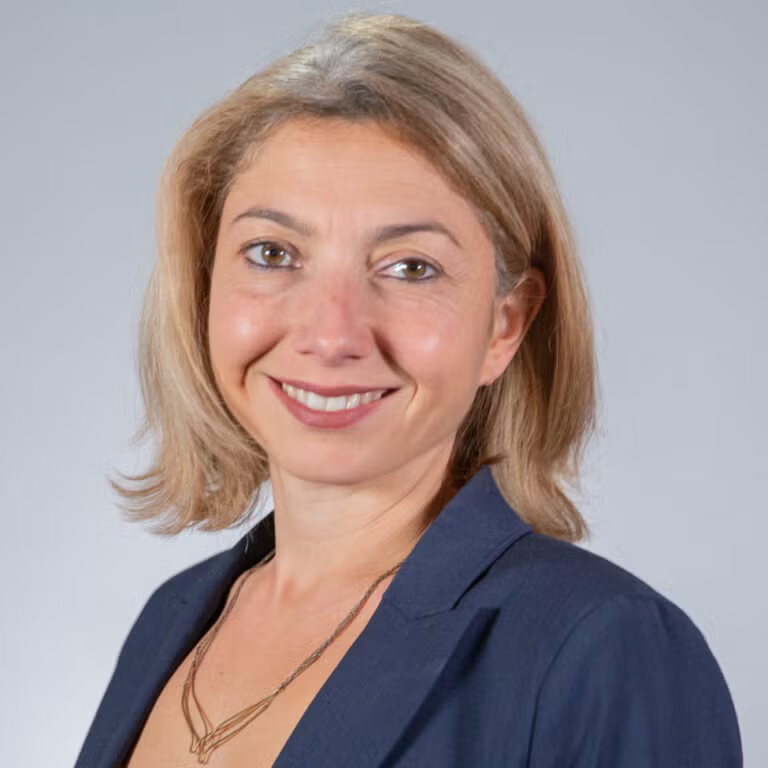
Assal Habibi
Assal Habibi is an Associate Research Professor of Psychology at the Brain and Creativity Institute at the University of Southern California. Her research takes a broad perspective on understanding the influence of arts and specifically music on health and development, focusing on how biological dispositions and learning experiences shape the brain and development of cognitive, emotional, and social abilities across the lifespan. She is an expert in the use of electrophysiological and neuroimaging methods to investigate human brain function and has used longitudinal and cross-sectional designs to investigate how music training programs impact the learning and academic achievement of children.
Assal’s research program has been supported by federal agencies and private foundations including the National Institutes of Health, National Endowment for the Arts, and the GRoW @ Annenberg Foundation and her findings have been published in many peer-reviewed journals. She has been the lead investigator of a multi-year study, in collaboration with the Los Angeles Philharmonic and their Youth Orchestra program, investigating the effects of early childhood music education on the development of brain function and structure as well as cognitive, emotional, and social abilities. She is a classically trained pianist and has many years of musical teaching experience with children, which is a longstanding personal passion.

Lisa Howley
Dr. Lisa Howley is an Educational Psychologist and Senior Director for transforming medical education at the Association of American Medical Colleges (AAMC). She joined the AAMC in 2016 and leads a diverse portfolio and multiple teams to advance the continuum of medical education, support experiential learning, and curricular transformation across its member institutions and their clinical partners. Under her leadership and vision, the long-standing national initiative FRAHME (pronounced frame) was born and built—the Fundamental Role of Arts and Humanities in Medical Education.
Prior to this national role, Lisa spent eight years as the Associate DIO and AVP of Medical Education and Physician Development for Carolinas HealthCare System, one of the largest independent academic medical centers in the U.S. In that role, she led several medical education initiatives across the professional development continuum, including graduate medical education accreditation, as well as physician leadership development for the large integrated healthcare system. She holds an adjunct faculty appointment at the University of North Carolina School of Medicine. She began her career as a member of the medical education faculty at the University of Virginia School of Medicine where she designed and led performance-based assessments and simulation-enhanced curricula. She received her bachelor’s degree in Psychology from the University of Central Florida, and both her Master of Education and PhD in Educational Psychology from the University of Virginia.

Mary Ittelson
Mary Ittelson is an Associate Professor of Strategy at the University of Chicago Booth School of Business where she teaches arts leadership and is founder and faculty advisor for The Arts and Creative Enterprise Program. Her work is grounded in the belief that art is essential for a rich life, vibrant communities, and a civil society. Spurred by the cultural, health, economic, and technological upheavals of recent years, Mary founded the Art + Business Lab to enlist students alongside artists and business leaders to foster positive change in individuals, businesses, and civic organizations.
Her firm, Ittelson Consulting, provides strategic planning, governance, and leadership counsel to arts, cultural, and business organizations. Clients include museums, theaters, dance companies, media corporations, universities, foundations, and government agencies. Her previous consulting experience was with McKinsey & Company where she served a variety of Fortune 100 clients. She has held numerous leadership roles in the cultural sector, including Chair of the Board and Associate Director of the Museum of Contemporary Art where she is a life trustee. She was a three-term member of the Chicago Cultural Advisory Council and serves on the Stanford University Arts Advisory Council.
Prior to her management career, Mary was a professional dancer and choreographer. She was Executive Director of Crossroads, Inc., a New York-based company of dancers and musicians. She was Assistant Professor of Theatre at Northwestern University where she taught dance technique, history, and choreography, and was elected to the Faculty Honor Roll. She earned an MBA from the Stanford Graduate School of Business, a BA in Choreography from New York University, studied dance at The Juilliard School, and was a Fellow at the Stanford University Distinguished Career Institute.

John Iversen
John Rehner Iversen, PhD, is a cognitive neuroscientist studying the interactions between music and the brain. He recently joined McMaster University as an Associate Professor in the Department of Psychology, Neuroscience & Behaviour after a decade at the University of California, San Diego. He is a member of the McMaster Institute for Music and the Mind. His research focuses on perception and production in music and language including studies of the role of culture in rhythm perception, whether rhythm perception is uniquely human, and charting brain mechanisms involved in beat perception, emphasizing the role of the motor system in listening.
Beyond music, John works on methods and research to study the brain in real-world contexts, using mobile brain/body imaging. He has directed teams describing the neural dynamics underlying real-world navigation, group interactions, and complex motor learning. Iversen directs several studies of the impact of music training on development in childhood and adolescence funded by the National Institutes of Health and a National Endowment for the Arts Research Laboratory. These projects place the impact of music into a broader neuro- developmental framework, in which researchers are charting the “growth curves” of the developing brain to understand how brain development shapes the emerging skills of each individual. John has championed the idea of leveraging existing large-scale developmental studies such as the NIH Adolescent Brain and Cognitive Development study by nesting studies of music and arts within them. After undergraduate studies in Physics at Harvard, he received an MPhil in History and Philosophy of Science at Cambridge and a PhD in Speech and Hearing Science from MIT.

Shabrae Jackson
Shabrae Jackson serves as teaching faculty and Coordinator for the Expressive Arts and Global Health program at the European Graduate School (EGS). Her work centers on themes of belonging, social cohesion, group dynamics, and peacebuilding. She is presently mapping how the arts and the rites of restoration act as incubators for health, well-being, and the seeds for social change within communities. Shabrae is founder of Collective Tapestry, a platform that creates community labs for collective exploration and inquiry through the arts and co-founder of UMBRAL, a collective that provides arts-based psychosocial trauma-informed training at the border for migrants and refugees.
Shabrae is a certified coach and holds additional certifications from Training for Conflict Transformation and Expressive Arts in Transition. She holds a BA in Social Work, a postgraduate degree in Sport for Conflict Transformation and Social Coexistence from the University of Catalunya, a MA in Expressive Arts for Conflict-transformation and Peacebuilding, and a Certificate of Advanced Graduate Studies

Girija Kaimal
Dr. Girija Kaimal (EdD, ATR-BC) is a Professor and Chair of the Creative Arts Therapies at Drexel University. In her Health, Arts, Learning, and Evaluation research lab, she examines the physiological and psychological health outcomes of visual and narrative self-expression. She has published over 100 peer-reviewed publications and two books including The Expressive Instinct (Oxford University Press) and Arts-based approaches to support mental health and well-being (Routledge).
Her research has been continually funded since 2008 by Federal agencies like the Department of Defense, Department of Education, National Endowment for the Arts as well as Foundations and academic centers. Her work has been featured by NPR, CNN, and The New York Times as well as a range of media outlets worldwide. Her research studies examine outcomes of art therapy for post-traumatic stress among military service members, integrated nutrition and creative arts therapies intervention for post-menopausal women, and arts-based approaches to mitigating chronic stress among patients and caregivers in pediatric hematology/oncology units. Additional international research projects include examining the therapeutic underpinnings of indigenous and traditional artforms.

Jean King
Dr. Jean King is the Worcester Polytechnic Institute (WPI) Peterson Family Dean in the School of Arts and Sciences. She also serves as a Professor of Biology and Biotechnology, affiliate Professor in Biomedical Engineering Department, Professor in the Neuroscience Program and Director of the NeuroTech Suite at WPI. Prior to joining WPI, Jean was Vice Provost for Biomedical Research at the University of Massachusetts (Umass) Chan Medical School; a tenured professor of psychiatry, radiology, and neurology; and Director of the University’s Center for Comparative Neuroimaging. She remains an affiliate faculty member at UMass Chan Medical School. Jean’s research is broadly focused on the adverse effects of stress on the brain, body, and behavior, including her current nine-million-dollar National Institutes of Health (NIH) five-year grant (UH3/UG3) to use AI to predict the response to mindfulness treatment for chronic pain.
Jean is an active proponent for STEM diversity through many pathways including leadership roles with the NIH, UMass Memorial Health Care, the Society for Neuroscience, and World Women in Neuroscience organizations. Her perspective on diversity in STEM has been featured in a recent article in Nature. Dr. King is the recipient of several mentoring and community service awards, including the Commonwealth of Massachusetts State Senate Official Citation for her Advocacy for Adolescent Girls and Mentor to Women of All Ages; the University of Massachusetts President’s Public Service Award for Exemplary Public service to the Commonwealth of Massachusetts; and the Get Konnected (GK50 Award) for the 50 Most Influential People of Color in Healthcare and the Life Sciences.
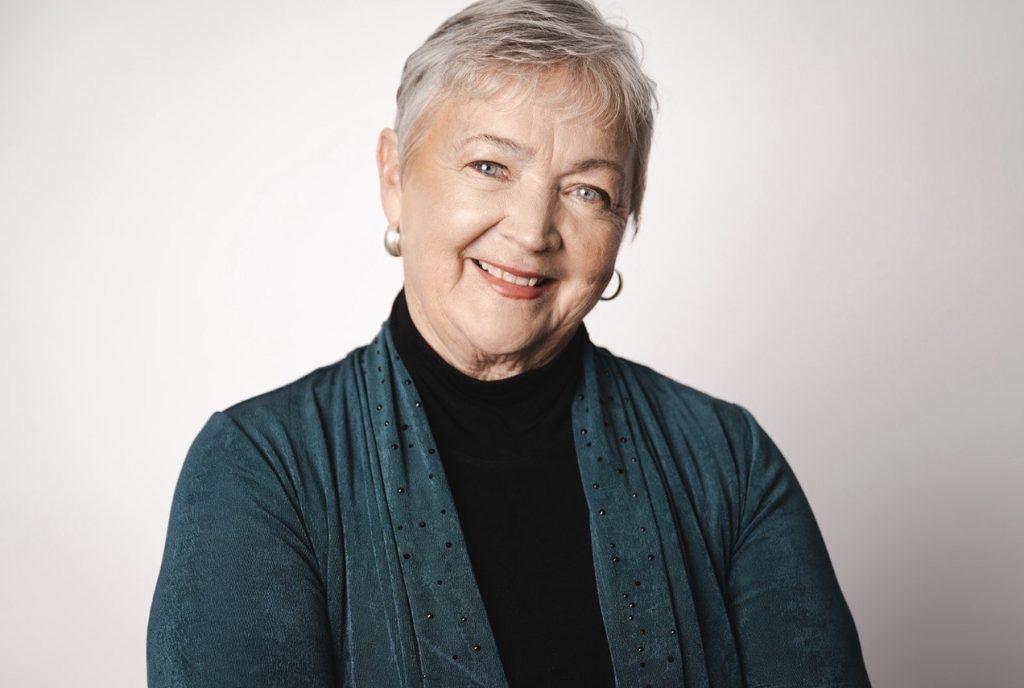
Mary Jo Kreitzer
Mary Jo Kreitzer PhD, RN, FAAN is the founder and director of the Earl E. Bakken Center for Spirituality & Healing at the University of Minnesota where she also serves as a tenured professor in the School of Nursing. She has served as the principal investigator or co-principal investigator of numerous clinical trials focusing on mindfulness meditation with persons with chronic disease including studies focusing on solid organ transplant, cardiovascular disease, chronic insomnia, diabetes, and caregivers of people with Alzheimer’s disease. Recent studies include the use of social technology to enhance healing and wellbeing and the impact of mindfulness on brain-computer interface performance.
Dr. Kreitzer has authored over 150 publications and is the co-editor of the text Integrative Nursing 2nd Edition published in 2019 by Oxford University Press. She earned her doctoral degree in public health focused on health services research, policy and administration, and her master’s and bachelor’s degrees in nursing. Dr. Kreitzer was named in 2020 as one of the 100 most influential health care leaders in Minnesota by MN Physician. She is a fellow in the American Academy of Nursing, a distinguished policy fellow in the National Academies of Practice and a Fellow Ad Eundem of the Faculty of Nursing and Midwifery in the Royal College of Surgeons in Ireland.

Judy Lichtman
Judith H. Lichtman, PhD, MPH, is Susan Dwight Bliss Professor and Chair in the Department of Chronic Disease Epidemiology at the Yale School of Public Health in New Haven, CT. She received her Master of Public Health degree and PhD in Epidemiology at Yale University. She has been actively involved in regional and national studies of cardiovascular and stroke outcomes and has served on several national committees related to cardiovascular and cerebrovascular disorders including the American Heart Association’s (AHA) Patient Education System Task Force, the AHA Peer Review Evaluation Design Task Force, the AHA Stroke and Epidemiology Councils, the AHA Quality of Care and Outcomes Research Expert Panel, and the American Stroke Association (ASA) Advisory Committee.
Judy has been a member of the program committee for the AHA Conference on Cardiovascular Disease Epidemiology and Prevention, and has served on numerous National AHA/ASA Writing Committees, including leading both an Advisory and Scientific Statement on depression and heart disease. She was the recipient of the C. Miller Fisher, MD Neuroscience Visionary Award from the AHA/ASA in 2018 and is a graduate of the Drexel University Executive Leadership in Academic Medicine program. Her research focuses on examining the epidemiology of stroke and heart disease using longitudinal databases and prospective observational studies.

Psyche Loui
Dr. Psyche Loui is Associate Professor of Creativity and Creative Practice in the Department of Music and director of the MIND (Music, Imaging, and Neural Dynamics) lab at Northeastern University. She holds a PhD in Psychology from University of California, Berkeley, and dual undergraduate degrees in Psychology and Music from Duke University. She studies the neuroscience of music perception and cognition, tackling questions such as: What gives people the chills when they are moved by a piece of music? How does connectivity in the brain enable or disrupt music perception? Can music be used to help those with neurological and psychiatric disorders?
Psyche’s work has been supported by National Science Foundation, National Institutes of Health, received multiple Grammy awards, a young investigator award from the Positive Neuroscience Institute, and a Career award from the National Science Foundation. Her projects have been featured by the Associated Press, New York Times, Boston Globe, BBC, CNN, the Scientist magazine, and other news outlets.

Elizabeth Margulis
Elizabeth Margulis is Professor and Director of the Music Cognition Lab at Princeton University. Her book On Repeat: How Music Plays the Mind (Oxford) won the Wallace Berry Award from the Society for Music Theory and the Deems Taylor/Virgil Thomson Award from ASCAP. Her co-edited volume The Science-Music Borderlands: Reckoning with the Past and Imagining the Future (MIT) won the Ruth A. Solie Award from the American Musicological Society. Her book The Psychology of Music: A Very Short Introduction (Oxford) has been translated into six languages.
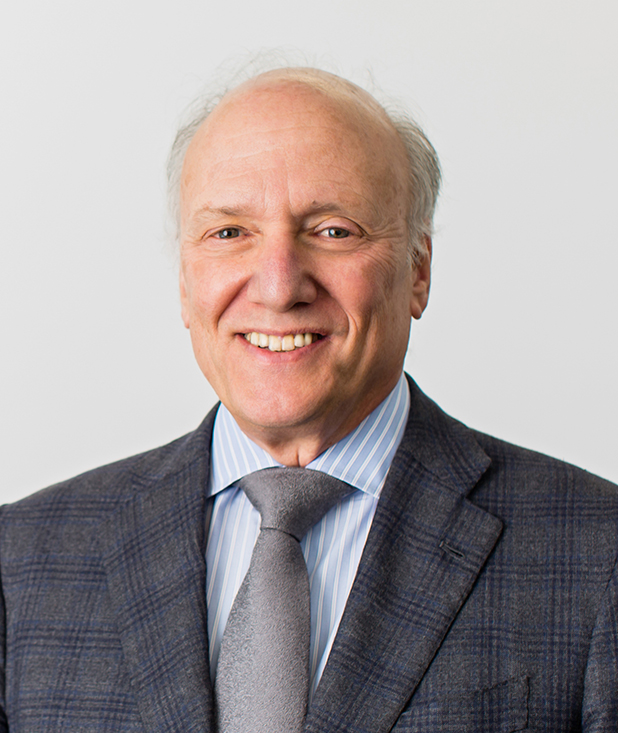
Bruce Miller
Dr. Bruce Miller holds the A.W. and Mary Margaret Clausen Distinguished Professorship in Neurology at the University of California, San Francisco (UCSF), where he directs the Memory and Aging Center, a National Institutes of Health-sponsored Alzheimer’s Disease Research Center. As a behavioral neurologist whose work emphasizes brain-behavior relationships, he has reported on the emergence of artistic ability, personality, cognition, and emotion with the onset of neurodegenerative disease. Additionally, he helps lead the Tau Consortium, the Bluefield Project to Cure Frontotemporal Dementia, the UCSF Parkinson’s Spectrum Disorders Center, and the Global Brain Health Institute. Bruce has been awarded the Potamkin Award from the American Academy of Neurology and elected to the National Academy of Medicine.
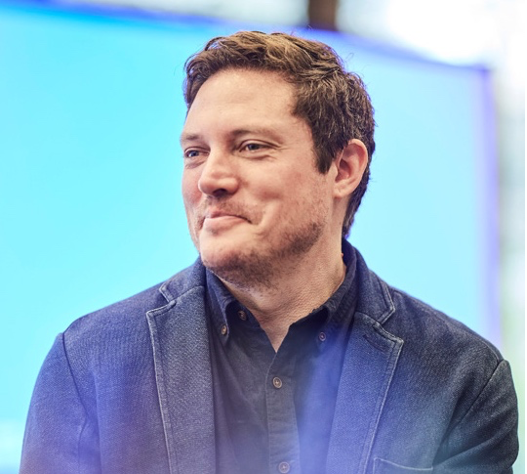
Michael Murphy
Michael P. Murphy is an architect, educator, and writer dedicated to reimagining how the built environment shapes our lives. In 2024, he launched AMMA, a design agency focused on solving complex spatial challenges and unlocking new opportunities and value. In addition to his design practice, Murphy serves as the Thomas W. Ventulett III Chair of Architecture at The Georgia Institute of Technology and holds a Master of Architecture from Harvard's Graduate School of Design.
Murphy has designed and built projects in over a dozen countries, earning global recognition for his work. His notable projects include The National Memorial for Peace and Justice in Montgomery, Alabama; The Butaro District Hospital in Rwanda; and “The Embrace” memorial on Boston Common, created in collaboration with artist Hank Willis Thomas. These and other landmark projects were completed during his tenure at MASS Design Group, the nonprofit organization which he co-founded in 2007 and led until 2022. He now serves as a trustee emeritus on its board.
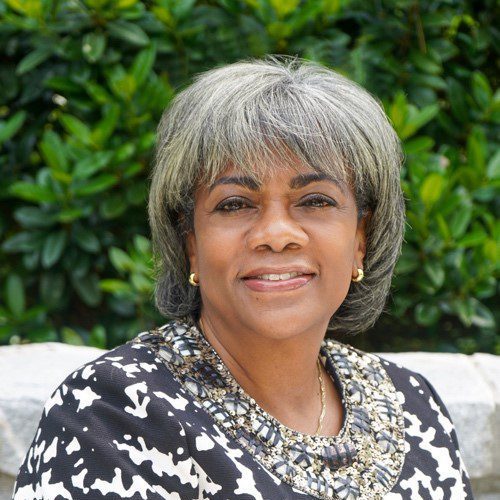
Monica Parker
Monica Willis Parker, MD, is a graduate of Fisk University and the University of Nebraska Medical Center. She has been a clinician and faculty member of Emory School of Medicine since 1995. In 2008, she was awarded a National Institutes of Health (NIH) Minority Supplement award to study and improve the participation of minority persons in clinical research studies in neurocognitive disorders at the Goizueta Alzheimer’s Disease Research Center (GADRC) at Emory University. She has transitioned roles as a geriatric primary care provider to that of clinical research investigator. She now leads the Minority Engagement Core (MEC), one of six cores of the GADRC.
Monica is co-investigator or task force member on several NIH-funded projects that examine the health concerns of women, African American Caregivers and the ethnic differences in neurocognitive disorders between African Americans and Caucasians. She advocates and educates about the importance of research participation for the elimination of health disparities in persons of color. As part of the GADRC Education Core, she has developed training curricula on aging and neurocognitive disorders for professional and lay audiences. She has established the Registry For Remembrance Community Coalition, a community academic partnership for advising and disseminating information about healthy aging and research recruitment opportunities for Alzheimer’s and related dementias.

David Putrino
Dr. David Putrino is Director of Rehabilitation Innovation for the Mount Sinai Health System, and a Professor in the Department of Rehabilitation and Human Performance at the Icahn School of Medicine at Mount Sinai. He works to develop innovative technology solutions for individuals in need of better healthcare accessibility.
David is an Official Medical Provider for Red Bull’s Sponsored Athletes in North America. He has a PhD in Neuroscience and worked as a clinician in Australia before moving to the United States to study computational neuroscience at Harvard Medical School, MIT, and NYU. He has served as a faculty member at Weill-Cornell Medicine and Burke Medical Research Institute.
He consults with the Red Bull High Performance division to use evidence-based technologies to improve athletic performance. He is also the “Chief Mad Scientist” of Not Impossible Labs, a group that crowd-sources accessible technological solutions for high-impact humanitarian problems. David’s research has been featured in Sport’s Illustrated, the Wall Street Journal, BBC, Time, Wired, and the LA Times, among other publications.

Sheri Robb
Sheri L. Robb, PhD, MT-BC, is a Walther Professor of Supportive Oncology in the Indiana University (IU) Schools of Nursing and Medicine, and a full member of the IU Simon Comprehensive Cancer Center. She is internationally recognized for her expertise in pediatric music therapy and behavioral intervention research. She is a board-certified music therapist with degrees in music therapy and early childhood special education. She also completed a post-doctoral fellowship in behavioral oncology and cancer control at Indiana University, followed by a training award in clinical and translational research from the Indiana Clinical and Translational Science Institute.
Sheri’s research focuses on development and testing of music-based interventions to manage distress and improve positive health outcomes in children and adolescents with cancer and their caregivers. She also led an interdisciplinary team to update and validate the Reporting Guidelines for Music-based Interventions to address calls for more transparent and accurate reporting in music intervention research.

Nisha Sajnani
Nisha Sajnani, PhD, RDT-BCT, is the Director of the New York University (NYU) Steinhardt Graduate Program in Drama Therapy, Chair of the NYU Creative Arts Therapies Consortium, and founder of the Arts & Health @NYU. In her capacity as founding co-director of the Jameel Arts & Health Lab, established in collaboration with the World Health Organization, Nisha leads a Lancet global series on the health benefits of the arts. An award-winning author, educator, and advocate, her body of work explores the unique ways in which aesthetic experience can inspire equity, care, and collective human flourishing across the lifespan.
Nisha is also on faculty with NYU Abu Dhabi where she developed a trans-disciplinary course entitled Can Art Save Lives? which unites current evidence for the health benefits of the arts with practice and policy. She is a faculty advisor in the Rehabilitation Sciences PhD, Educational Theatre EdD and PhD program, and co-teaches Improvisation and Leadership in the Management Communication Program and the Executive Education program in NYU Stern. She is also on faculty with the Harvard Program in Refugee Trauma where she lectures on the role of the arts in global mental health.

Milton Shinberg
Milton Shinberg is a long-time Washington, DC, architect who has served as an adjunct professor at the Catholic University of America’s (CUA) School of Architecture & Planning for nearly 50 years. Many of his education facility projects with Shinberg Levinas Architects have won design awards and have been published locally, nationally, and internationally. At the CUA School of Architecture & Planning, he has taught all the studio levels, both undergraduate and graduate, along with initiating special courses on design, including an emphasis on all the senses and drawing.
Milton was given the Architect Teacher Award by the Washington Architectural Foundation in 2021 and the Part-Time Teacher Award by Catholic University in 2023.
His most recent book, People-Centered Architecture: Design, Practice, and Education (Wiley), addresses integrating the sciences of people into design, along with harvesting architectural wisdom from non-architects. Among his many initiatives is Beauty & Brains, a seminar investigating the intersection of neuroscience and architecture, begun in 2003.
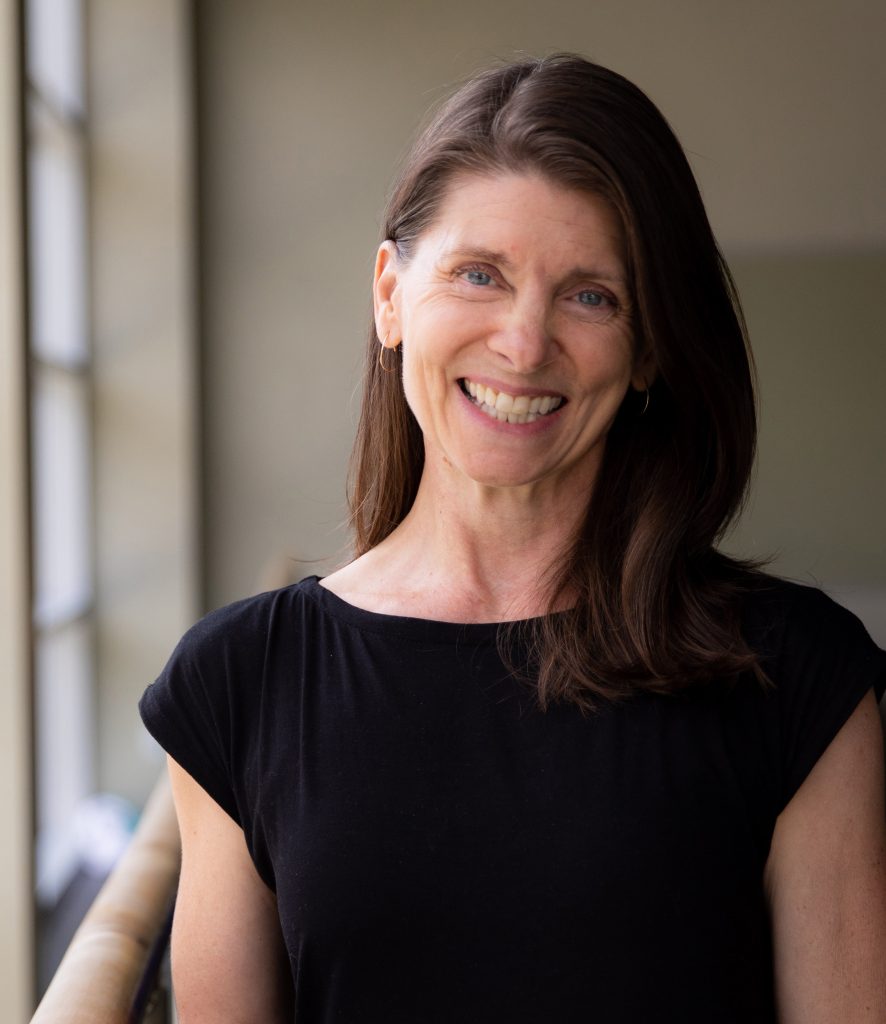
Jill Sonke
Jill Sonke, PhD, is director of research initiatives in the Center for Arts in Medicine at the University of Florida (UF), director of national research and impact for the One Nation/One Project initiative, and co-director of the EpiArts Lab, a National Endowment for the Arts Research Lab in partnership with University College London. She is an affiliated faculty member in the UF School of Theatre & Dance, the Norman Fixel Institute for Neurological Diseases, the Center for African Studies, and the STEM Translational Communication Center, and is an editorial board member for Health Promotion Practice journal.
Jill served during the pandemic as a senior advisor to the US Centers for Disease Control and Prevention (CDC) Vaccine Confidence and Demand Team on the COVID-19 Vaccine Confidence Task Force and currently serves on the steering committee and as an Affiliated Researcher in the Jameel Arts & Health Lab, established by the World Health Organization (WHO), the Steinhardt School at New York University, Community Jameel, and CULTURUNNERS.
Jill has a PhD in arts in public health from Ulster University in Northern Ireland. She is the recipient of a New Forms Florida Fellowship Award, a State of Florida Individual Artist Fellowship Award, a NISOD Excellence in Teaching Award, a UF Internationalizing the Curriculum Award, a UF Most Outstanding Service-Learning Faculty Award, a UF Public Health Champions award, a UF Cross-Campus Faculty Entrepreneur of the Year Award, and over 350 grants for her programs and research at the University of Florida.
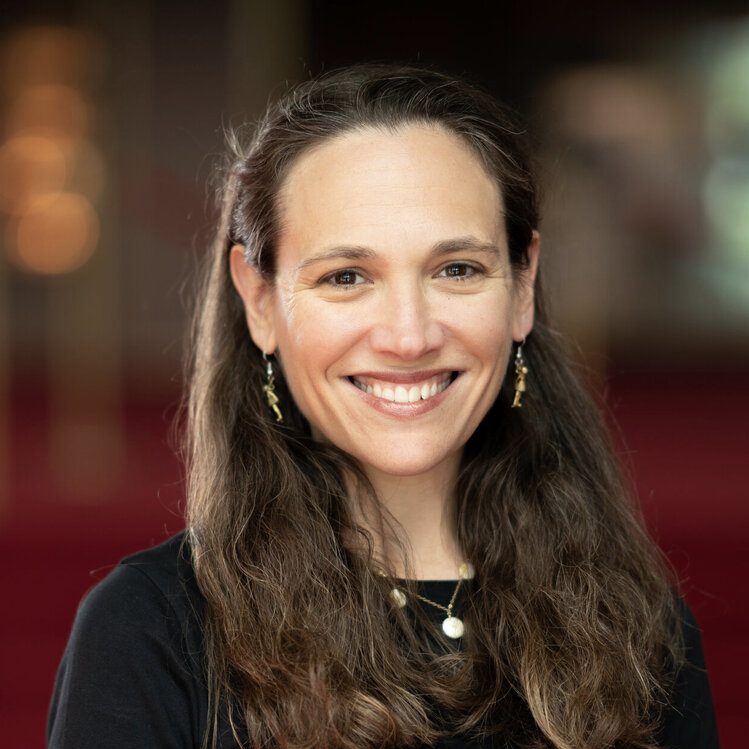
Christina Soriano
Christina Soriano, the Reynolds Professor of Dance at Wake Forest University, is the former Vice Provost for the Arts and Interdisciplinary Initiatives at Wake Forest University, a position she held for 7 years from 2017-2024. At Wake Forest, Christina teaches courses that focus on improvisation, modern dance technique, arts and activism, and interdisciplinary studies like Neuroscience and Dance, which she co-teaches with her neuroscience collaborator, Dr. Christina Hugenschmidt. Together, the Christinas have received generous funding from the National Parkinson Foundation, Blue Cross Blue Shield of NC, and twice from the National Institutes of Health to support their collaborative dance and neuroscience research where they investigate the ways that dance can increase mobility, balance, cognition and quality of life for people living with age-related neurodegenerative diseases.
Since 2012, Christina has regularly taught a community dance class in Winston-Salem, NC for older adults living with neurodegenerative diseases such as Parkinson’s or Alzheimer's and their carepartners. She is a partner at the Intergenerational Center for Arts and Wellness at Senior Services, Inc. in Winston-Salem, NC, a former Kennedy Center Citizen Artist Fellow, and a Next Avenue Influencer in Aging. In addition to the new works she creates for the Wake Forest Dance Company each year, Christina’s choreography has been presented throughout New England, North Carolina, New York and in Vienna, Austria. Christina has premiered 7 works for the the Music Carolina Festival in Winston-Salem since 2013 where she always works with live musicians and often presents pieces with large, intergenerational casts of dancers, ranging in ages from 2-88.

Adrian Tyndall
Dr. Joseph (Adrian) Tyndall, MD, MPH, FACEP. is currently the Executive Vice President for Health Affairs and Dean of Morehouse School of Medicine. He previously served as a professor and Chair of the Department of Emergency Medicine at the University of Florida College of Medicine since 2008. He was also immediately previously the Associate Vice President for Strategic and Academic Affairs for UF Health in Gainesville, Florida.
Adrian was appointed interim dean of the College of Medicine at the University of Florida in 2018, the 13th physician and only person of color to lead the college as dean. He served in that position for two and a half years before transitioning to his current system level role. He is the first chair of color of an academic department in the UF College of Medicine’s history and was the second African American in the U.S. to be named chair of an academic emergency medicine department at a U.S. medical school.
Adrian is a graduate of the University of Maryland School of Medicine and the emergency medicine residency program at the University of Maryland Medical System. In addition, he received his Master’s in Health Services Management and Health Policy from Columbia University in the City of New York. He served on the Board of Directors of UF Health Shands Hospital at the University of Florida for a decade and was chair of the Board of Trustees for the UF Health Proton Therapy Institute during his tenure as interim dean. From 2014-208, he also represented the UF College of Medicine as the senior medical school representative to the Council for Faculty and Academic Societies of the Association of American Medical Colleges.
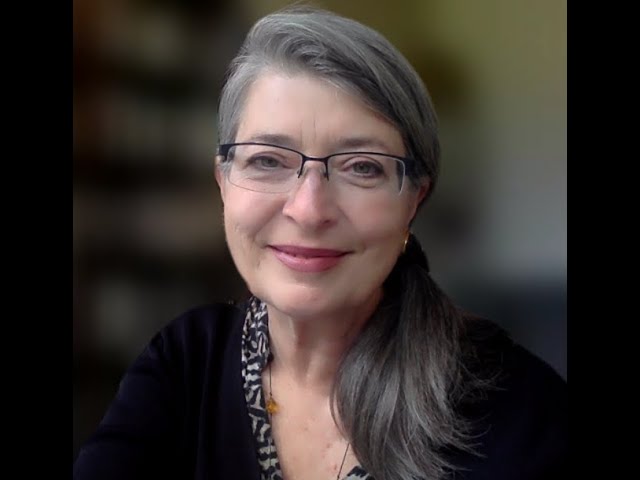
Tamara Underiner
Dr. Tamara Underiner is associate professor in the School of Music, Dance and Theatre at Arizona State University, where she serves as founding director of the PhD program in Theatre and Performance of the Americas. She also convenes Creative Health Collaborations, a university-wide effort to integrate arts, humanities, and design approaches in health research, education, practice, and policy. With Dr. David W. Coon, she co-directs a National Endowment for the Arts-sponsored Research Lab studying the health-supporting role of the arts in different types of caregiving contexts and via a range of participatory arts experiences involving both caregivers and their loved ones.
From 2017-2023, Tamara served as associate dean for academic affairs and professional development in the Graduate College, where she oversaw the academic quality and general professional development activities of graduate students and postdocs, including the Center for the Integration of Research, Teaching and Learning and the Preparing Future Faculty and Scholars program.
Prior to joining the Graduate College, she was associate dean for research at the Herberger Institute for Design and the Arts, where she helped to foster interdisciplinary collaborations between Herberger artists, researchers, and other ASU faculty and community members. She earned a bachelor's in communication arts from the University of Dayton, a master's in theatre from Arizona State University, and a doctorate in drama from the University of Washington.

Indre Viskontas
Dr. Indre Viskontas is a neuroscientist, musician, and science communicator across all mediums. She is an Associate Professor of Psychology and director of the Creative Brain Lab at the University of San Francisco. She has published more than 50 original papers and chapters related to the neural basis of memory and creativity, serves as the President of the Society for the Neuroscience of Creativity, Chair of the Scientific Advisory Board of the NeuroArts Blueprint, and was formerly the Director of Communications for the Sound Health Network, an initiative of the National Endowment for the Arts.
Indre has written and filmed 98 lectures for The Great Courses, hosted several TV shows and more than 450 podcast episodes across four different podcasts with more than 15 million downloads, and has appeared on The Oprah Winfrey Show, PBS NewsHour, and major radio stations across the U.S. Her first book, How Music Can Make You Better, was published by Chronicle. She has also recently released a LinkedIn Learning course titled Building Creativity from the Brain Up.

Lisa Wong
Dr. Lisa Wong is Associate Co-Director of the Arts and Humanities Initiative at Harvard Medical School. She is a pediatrician, musician, arts advocate, and author. She is a pediatrician at Milton Pediatric Associates and an assistant clinical professor of pediatrics at Harvard Medical School, where she also co-founded and serves as associate co-director of the Arts and Humanities Initiative. She is past president and a current violinist in the Longwood Symphony Orchestra, the ensemble of Boston’s medical community.
Lisa serves on the boards of the Conservatory Lab Charter School, the New England Foundation for the Arts, and A Far Cry, and is on the Advisory Board for the Boston Public Schools Arts Expansion Initiative. She previously served on the boards of the Massachusetts Cultural Council, Young Audiences of Massachusetts, and the Boston Landmarks Orchestra. She co-founded the Boston Arts Consortium for Health with colleagues throughout the city. She continues to work closely with El Sistema-inspired programs for music as social change in Massachusetts.
She earned her bachelor’s degree in East Asian studies from Harvard University and graduated from New York University School of Medicine. She received an honorary degree from Wheelock College in 2016. In 2012, she published Scales to Scalpels: Doctors Who Practice the Healing Arts of Music and Medicine in collaboration with writer Robert Viagas.
